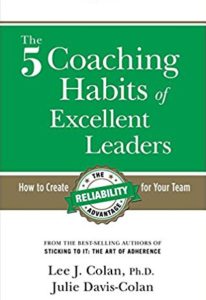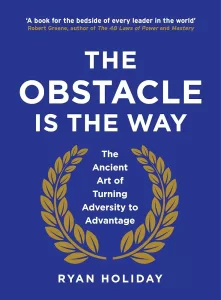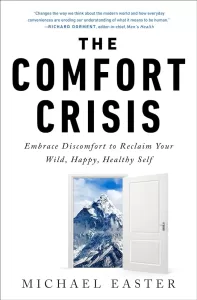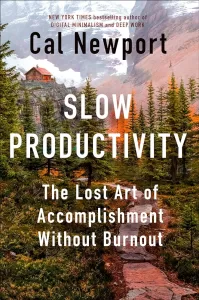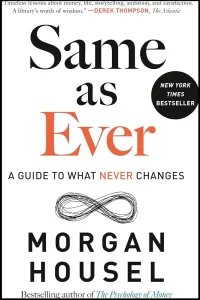Book Review: “The 5 Coaching Habits of Excellent Leaders”
Book: The 5 Coaching Habits of Excellent Leaders by Lee Colan and Julie Davis-Colan
Reviewer: Bobby Powers
My Thoughts: 7 of 10
I found The 5 Coaching Habits of Excellent Leaders to be a useful guidebook for improving my own reliability and my team's output. Like most of Lee and Julie's books, The 5 Coaching Habits is a bite-sized read that can be easily consumed in a short plane ride from L.A. to San Fran. The authors don't waste time with nauseating repetition; they succinctly communicate their thoughts to save time for the reader. My favorite takeaway was the authors' assertion that a leader's personal reliability is the strongest predictor of their team's success.
Takeaways from the Book
Personal Reliability
- “Your personal reliability has a disproportionate impact on your team’s reliability. You must be personally reliable before you can effectively coach your team to generate reliable results.”
- “Leadership is an inside job. It starts with your personal leadership traits, such as integrity, trust, competence, authenticity--all of which are aspects of personal reliability.”
- “The most important question a leader should ask is, ‘How reliable am I?’”
- “Reliable people have a high say/do ratio. That’s the ratio of things you say you will do to the things you follow through on and do...Simply being aware of your say/do ratio can help change your behavior--improving your follow-through and more cautiously making promises.”
- “When someone always follows through, it is impressive. It is the quickest way to build credibility and trust with others...However, most people tend to slip on their commitments because they overestimate their available free time, want to please others, have unclear priorities and lack guiding principles for when to say ‘yes’ or ‘no’ to requests.”
- “The key to being a great coach is being a good student. It all starts with you! If your team sees your thirst for and openness to learning, they will model the same behavior.”
- “When all is said and done, more is said than done.” -Aesop
- “To be personally reliable, avoid non-committal answers like ‘maybe.’ Be clear and direct. Redefine the term ‘polite’ by taking the long view. You might be appeasing the other party by saying ‘yes’ now, but you will ultimately disappoint them (and yourself) by overcommitting and possibly not delivering on your word. In today’s noncommittal and less reliable world, ‘yes’ has become the new ‘maybe.’ If your ‘yes’ really means ‘yes,’ you immediately vault into the top 5 percent of reliable people.”
- “Speaking with specificity creates a sense of reliability and commitment. Ambiguity is the Achilles heel of reliability. Ambiguous language increases frustration and rework, but specific language boosts reliability.”
- “Build reliability for others and yourself by using specific phrases like these:”
- “Yes, I will do that for you.”
- “I’m not sure, but I’ll give you a firm answer by noon tomorrow.”
- “I will own this.”
- “I will make time to get this done.”
- “It will be done by Friday, March 18 at 2 p.m. Central Time.”
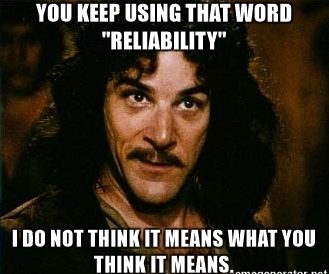
The 5 Coaching Habits of Excellent Leaders
- Explain Expectations --> Leads to ALIGNMENT
- Ask Questions --> Leads to ENGAGEMENT
- Involve Team --> Leads to OWNERSHIP
- Measure Results --> Leads to ACCOUNTABILITY
- Appreciate People --> Leads to COMMITMENT
Explain Expectations
- “The imperfect nature of human communication requires us to be more specific than we think we need to be. Lack of clear expectations is the most common reason for performance problems.”
- “Like any aspect of leadership, gaining alignment does not just happen. It must be intentional. Our late friend and excellent leader Ron Rossetti liked to say, ‘Awesomeness is never accidental.’”
- Four fundamental questions employees have regarding expectations:
- "Where are we going?" (Goals)
- "What are we doing to get there?" (Plans)
- "How can I contribute?" (Roles)
- "What’s in it for me?" (Rewards)
Ask Questions
- “Excellent leaders prevent blind spots by making concerted efforts to keep in tune with the realities of their employees--listening for the truth. This is particularly important because the higher you are in an organization, the more filtered the information you receive.”
- “He who talks the most loses.” -Andrew Levi
- “By simply asking questions, your employees will reveal challenges and opportunities that could potentially take you months or years to identify.”
- “Excellent leaders not only know the right questions to ask, but they also know how to patiently wait for an answer. They are comfortable with silence. If you are not comfortable with the silence, you will fill it with another question that leaves your original question unanswered and squelches engagement.”
- “After asking an employee a question, your patience creates power. Resist the gravitational pull to fill the void. Your silence creates accountability for a response.”

Involve Team
- “Employees will exchange their involvement for ownership in the outcomes.”
- “You can get just about anything in life you want if you help enough other people get what they want.” -Zig Ziglar
Measure Results
- “Keeping score brings out our best because we inherently like to win...You can keep score on your revenue, profitability, customer satisfaction, quality, prospect pipeline, cost per sales, employee engagement, defects, inventory, call-center response time and so on...To keep it simple, measure only what matters most. Do not measure everything.”
- “You get the behaviors you are willing to tolerate. If you rank your team by performance level, your lowest performer is a public statement of the performance level you are willing to tolerate. That is what your team sees as your performance standard. Ignoring issues puts your team and your leadership credibility at risk.”
Appreciate People
- “Unfortunately, the reality is that the lack of appreciation is the No. 1 reason people leave their jobs.”
- “While we judge ourselves by our intentions, others judge us by our actions. What is important is not how much you appreciate people, but rather how much you demonstrate that appreciation.”
- “Look for things [employees] are doing well and reinforce it. For example, recognize positive movement or effort toward the goal. Demonstrate your appreciation for their approach, not just their results.”
- “After interviewing 25,000 leaders, Ferdinand Fournies found the most effective leaders had one thing in common--they expressed a sincere interest in their employees.”
- “Know your PEOPLE, not just your EMPLOYEES.”
Think you’d like this book?
Other books you may enjoy:
The 21 Irrefutable Laws of Leadership by John Maxwell
The Coaching Habit by Michael Bungay Stanier
Other notable books by the authors:
Sticking to It: The Art of Adherence
The Nature of Excellence
7 Moments...That Define Excellent Leaders
